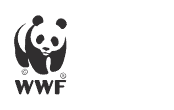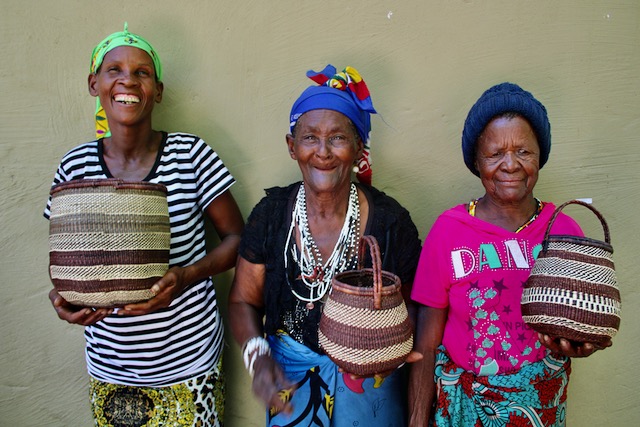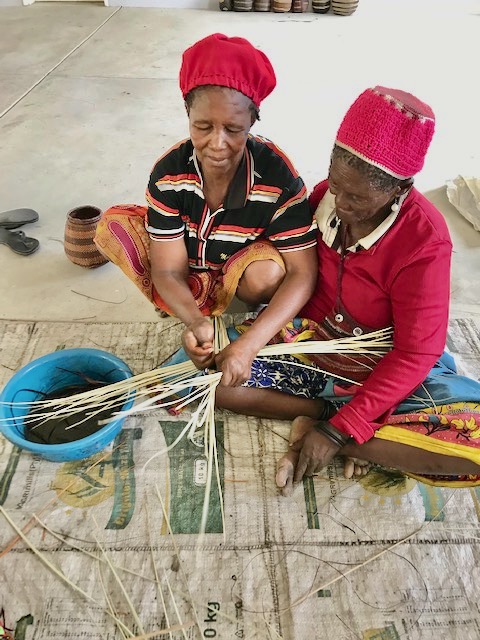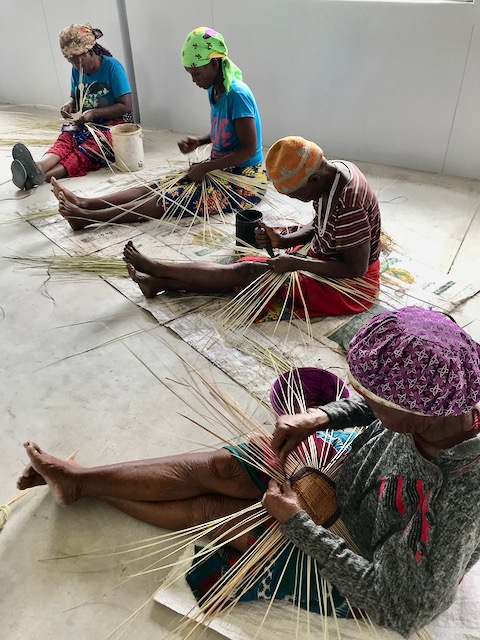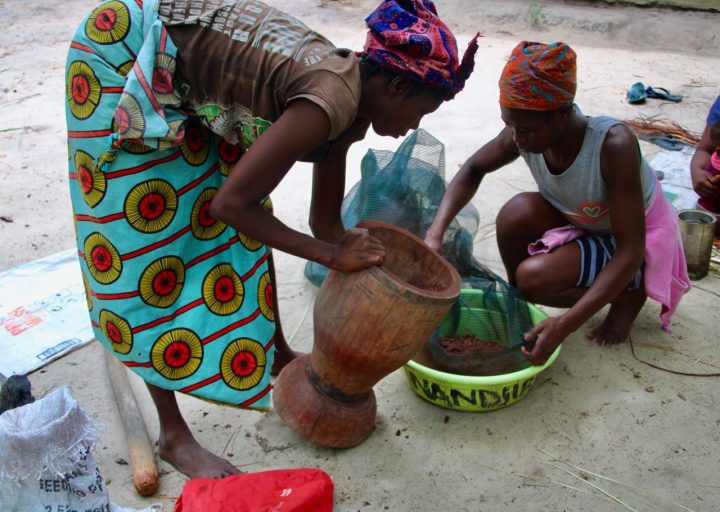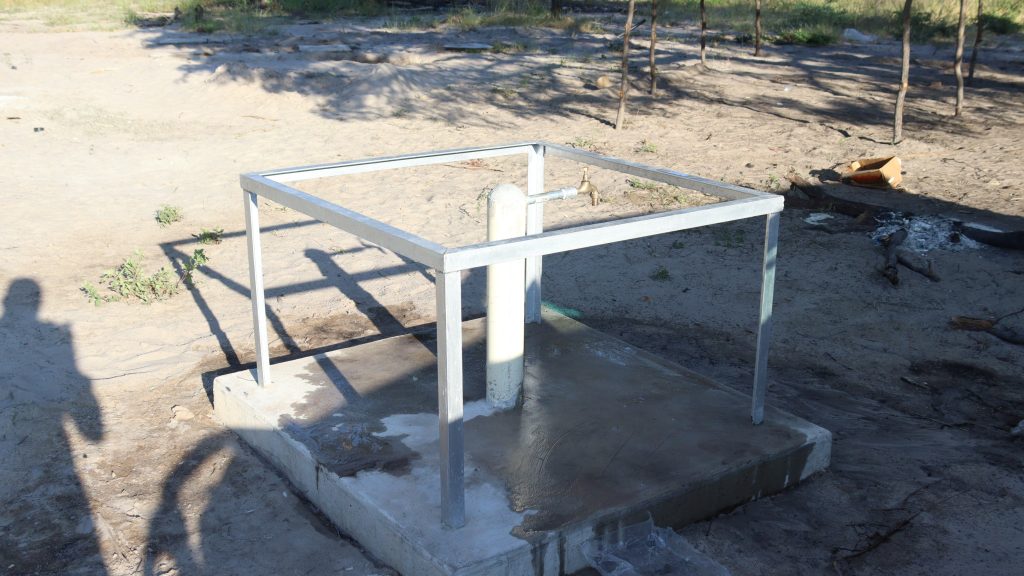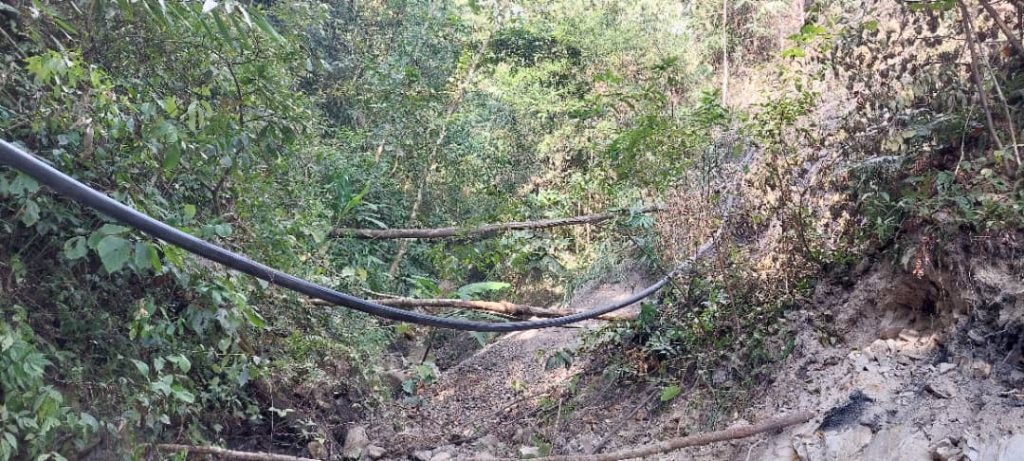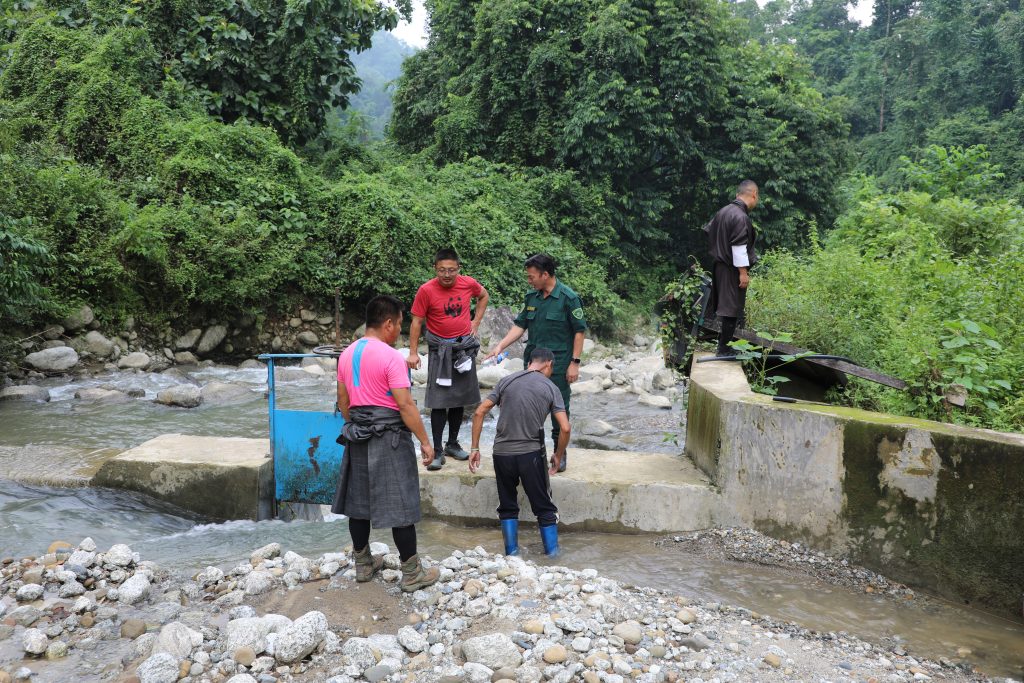Purpose
Train 16 women from the Khwe community in basket weaving. This alternative livelihood will help minimize reliance on wild fruit collection and create a sustainable source of income.
Climate Impacts
The Khwe community reported the following impacts:
• Crop failure and reduced pasture
• Reduction in wild fruits
• Increased reliance on government aid and markets for food
• Reduced freshwater availability
• Decline in firewood availability
• Impacts to human health
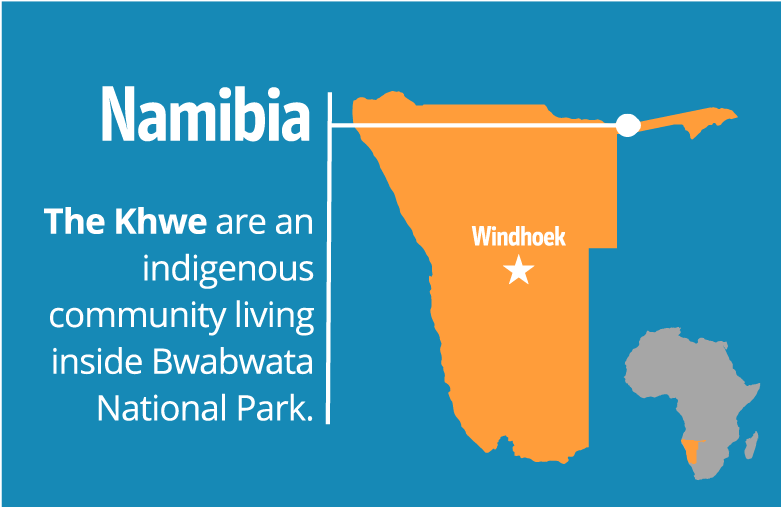
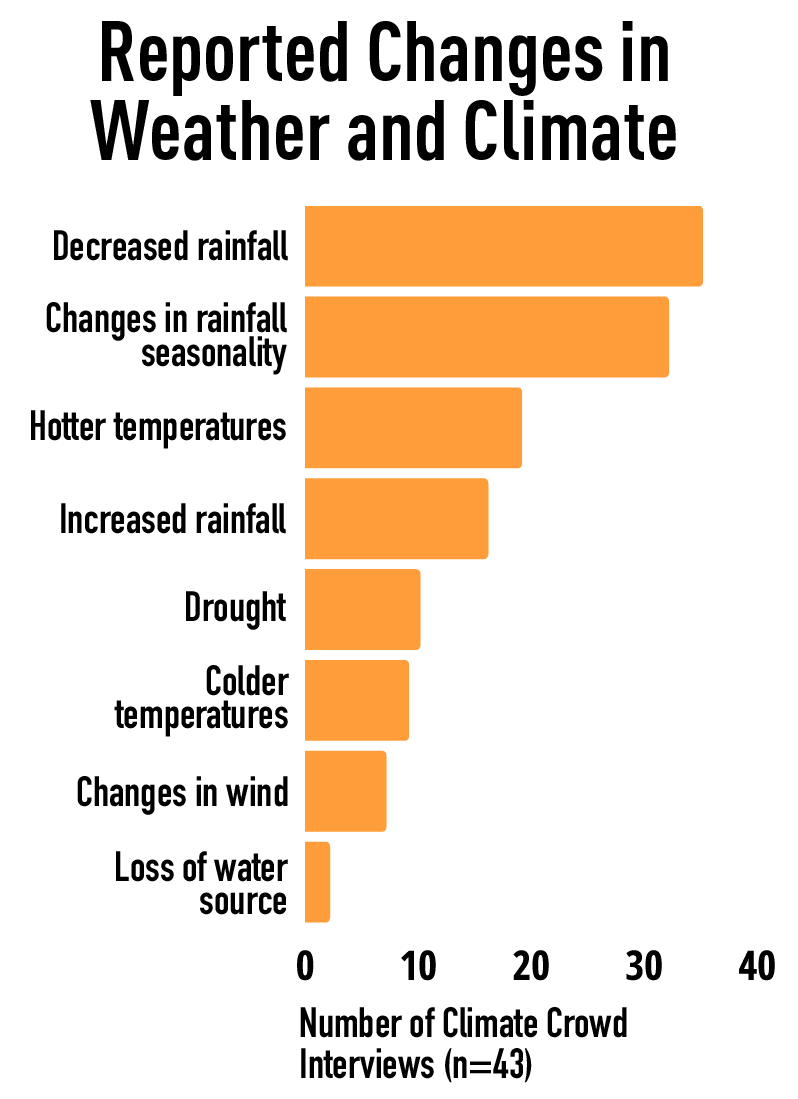
Activities
Identification of Trainer
Omba Arts Trust specializes in basket weaving training and marketing of the product.
Identification of basket weavers
During a community feedback meeting, the Omega 3 and Luitcikxom villages representatives were tasked with identifying sixteen Khwe women that were interested in being trained to weave baskets.
Collection of raw materials
Palm leaves and the various plants used to make dyes were collected from the forest to be used for basket weaving.
Basket weaving training
The sixteen participants were divided into three groups: older individuals (some with impaired eyesight), inexperienced weavers, and experienced weavers who were trying out new shapes. The Khwe basket weavers use a warp and weft technique for the rounded basket, and it features an innovative handle. The training lasted for a period of nine days in December 2022.
Providing market access
Marketing, pricing, and grading/quality assessment training was provided to the weavers. Omba Arts Trust will start purchasing baskets from the trainee villages, and we are exploring other opportunities to sell these baskets.
project outcomes
project design
Two indigenous San communities live within Bwabwata National Park in Namibia, including the Khwe. They were historically hunter gatherers, but over the years have turned to crop and small livestock farming. Our interviews with them revealed a number of climatic challenges they are dealing with, including prolonged drought, changes in rainfall seasonality and wind patterns. As a result, they are experiencing food insecurity, and they have very limited access to other employment and income generating activities. This has increased their reliance on wild fruits for both sale and consumption, placing pressure on these natural resources.
To address this, this project focused on training 16 women in basket weaving techniques, and providing market access for their products. This has helped to diversify the community’s income streams while also empowering indigenous Khwe women. This activity provides a long-term sustainable source of income, which is nature-friendly, and will help make the community more resilient to the changes in weather and climate they are experiencing.
